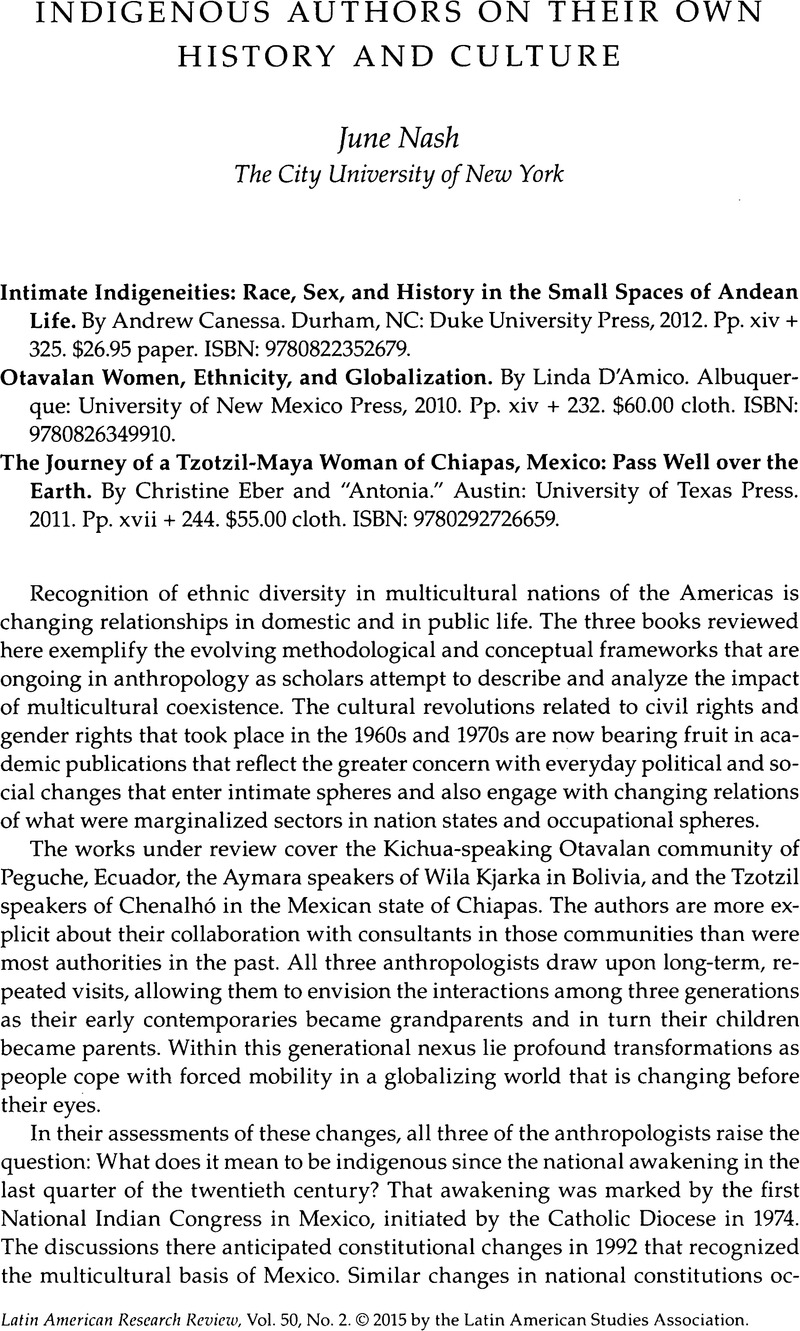No CrossRef data available.
Article contents
Indigenous Authors on their Own History and Culture
Review products
Published online by Cambridge University Press: 05 September 2022
Abstract

- Type
- Review Essays
- Information
- Copyright
- Copyright © 2015 by the Latin American Studies Association
References
1. Corroborating evidence from Andean sites with very distinct economies such as the Bolivian tin mines resonates in my reading of the Otavalans.
2. Benjamin Kohl and Linda Farthing, From the Mines to the Streets: A Bolivian Activist's Life (Austin: University of Texas Press, 2011).
3. I suspected when the MAS government came to power in 2006 that many of the miners who went to the jungles of Chapare and Yungas must have been a strong organizing force in the ranks of the coca growers. This is partially vindicated in the autobiography of Filemón Escobar. Escobar was a major leader of the Partido Obrero Revolucionario wing of the Federación de Sindicatos de Trabajadores Mineros de Bolivia in the turbulent days of the 1950s to the 1980s. Reflecting on his turn to embracing the Pachakuti and the celebration of earth and time, he indicates that he wished to unite the growing movement of cultivators within the Center of Bolivian Workers which he also headed, but was rebuffed by the emergent leadership of the MAS. Clearly the autobiographies of such leaders could clarify ethnographic studies of communities.




